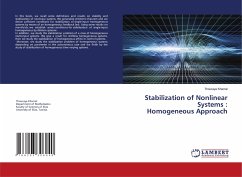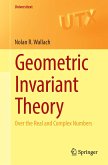The general theme of this book is the interplay between the geometry of homogeneous complex projective varieties, the structure and representation theory of their symmetry groups, and more specifically, invariant theory related to subgroups of the symmetry groups. The framework is based on the Borel-Weil theorem and the Geometric Invariant Theory of Hilbert-Mumford. The setting is classical and the basic objects of interest are widely studied. A source of unanswered questions lies in the notorious nonconstructiveness of Hilbert's theorem asserting the existence of a finite generating set for the ring of invariants in the homogeneous coordinate ring of a complex projective variety endowed with a reductive group action. The goal of this work is to contribute to the effort for further development of the structure theory of reductive Lie groups, aiming to bound and explore the variation of certain parameters related to generating sets of invariants. Particular attention is given to the geometry of unstable loci - the zero-loci of the invariants of positive degree.
Bitte wählen Sie Ihr Anliegen aus.
Rechnungen
Retourenschein anfordern
Bestellstatus
Storno








